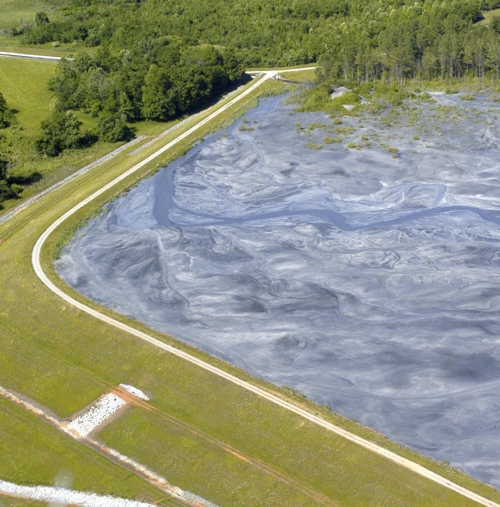Editorial: Customers shouldn’t pay for coal ash cleanup
Published 12:00 am Tuesday, October 1, 2019

- A coal ash retainment pond several years ago at the Buck Steam plant along the banks of the Yadkin River just east of I-85 bridge in Rowan County as seen from the air. Photo by Jon C. Lakey, Salisbury Post.
Deborah Graham, a resident of the Dukeville area, said it well in 2017.
“It would add insult to injury to have to pay more every month in my electric bill so that Duke can continue to earn a profit after decades of waste mismanagement,” said Graham, who became an environmental activist after questions of water quality arose around Buck Steam Station’s coal ash ponds.
Graham was speaking to the Post after Duke requested a rate increase to, among other things, help with costs associated with cleaning up coal ash. She and other Rowan County residents may have a similar reaction after hearing that the company is requesting another rate increase.
N.C. Utilities Commission this week, Duke Energy asked for an average 6% rate increase across all customer groups. The average rate increase would be 6.7% for residential customers while commercial and industrial customers would see an average increase of 5%. An individual bill would vary based on usage. The company says an average residential customer who uses 1,000 kilowatt-hours of electricity monthly would pay $8.06 more per month.
The rate increase, among other things, would pay for upgrades to cleaner electricity, improving the electrical grid’s reliability and, notably, coal ash cleanup.
The N.C. Utilities Commission should approach the request with a skeptical eye, particularly as the increase relates to coal ash. And North Carolinians should look for public officials like Attorney General Josh Stein to fight to ensure the cost of cleanup isn’t passed along to ratepayers in the latest request. That’s because Duke has pleaded guilty to federal environmental crimes related to coal ash mismanagement and paid fines for what the N.C. Utilities Commission called the “irresponsible management” of its coal ash pits. To put it lightly, Duke Energy made mistakes.
As Stein wrote in a court filing that appealed a Utilities Commission decision last year, “Duke knew of the risks of storing coal ash in unlined surface impoundments and failed to take timely and appropriate action to address those risks.”
Customers should not bear the costs for those mistakes, now or in the future.
Sure, coal ash cleanup should be considered in the cost of doing business. But we’ve already paid those costs. Many North Carolinians haven’t paid for power generated by coal in years. And electricity used in their homes today doesn’t come from coal-fired plants. In Rowan County, for example, there are more than a dozen solar farms generating electricity and two gas-fired power plants. The nearest coal-fired plants are multiple counties and tens of thousands of Duke Energy customers away.
The N.C. Utilities Commission would be doing a disservice to North Carolinians if it allows the company to recoup coal ash cleanup costs with increased rates.


